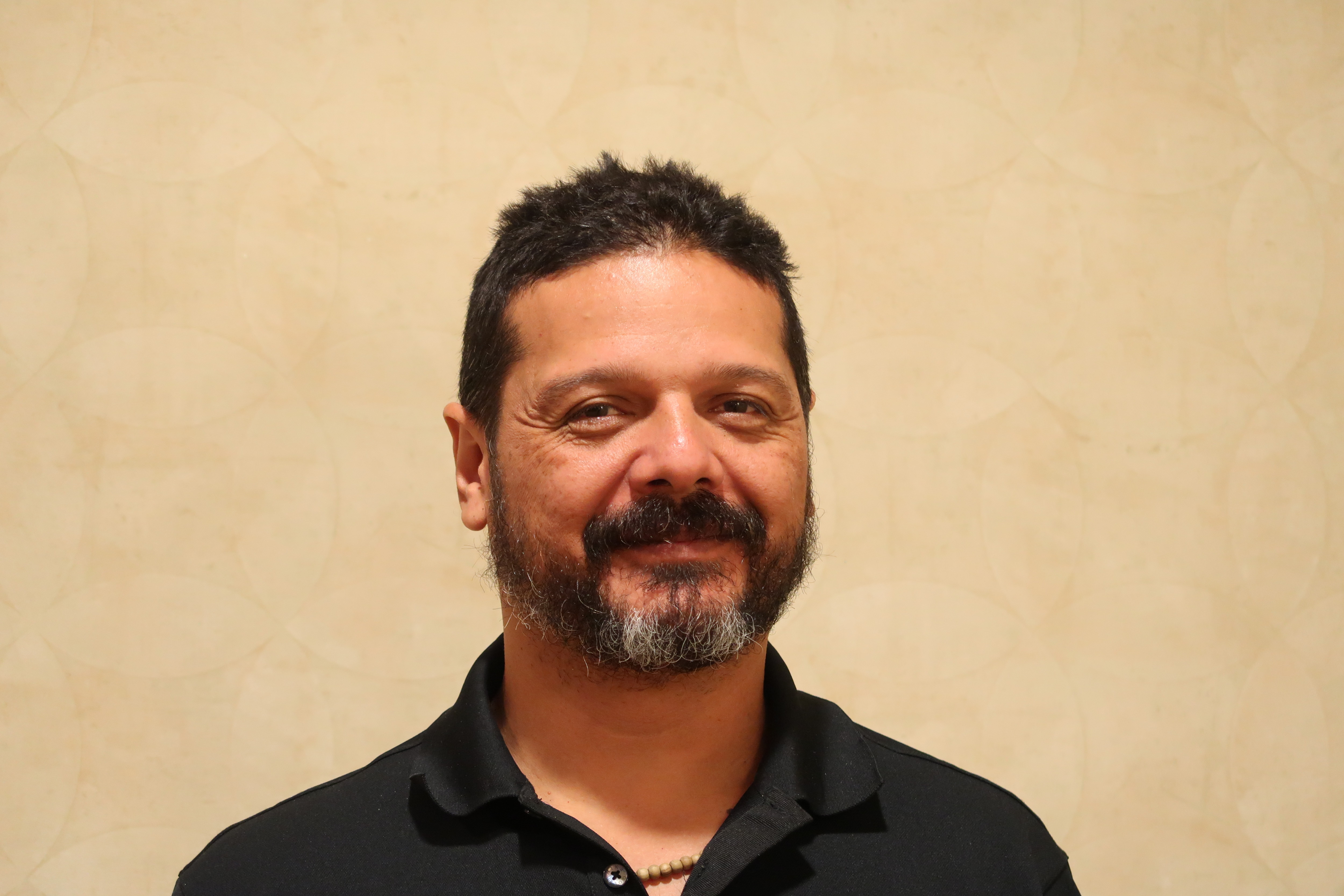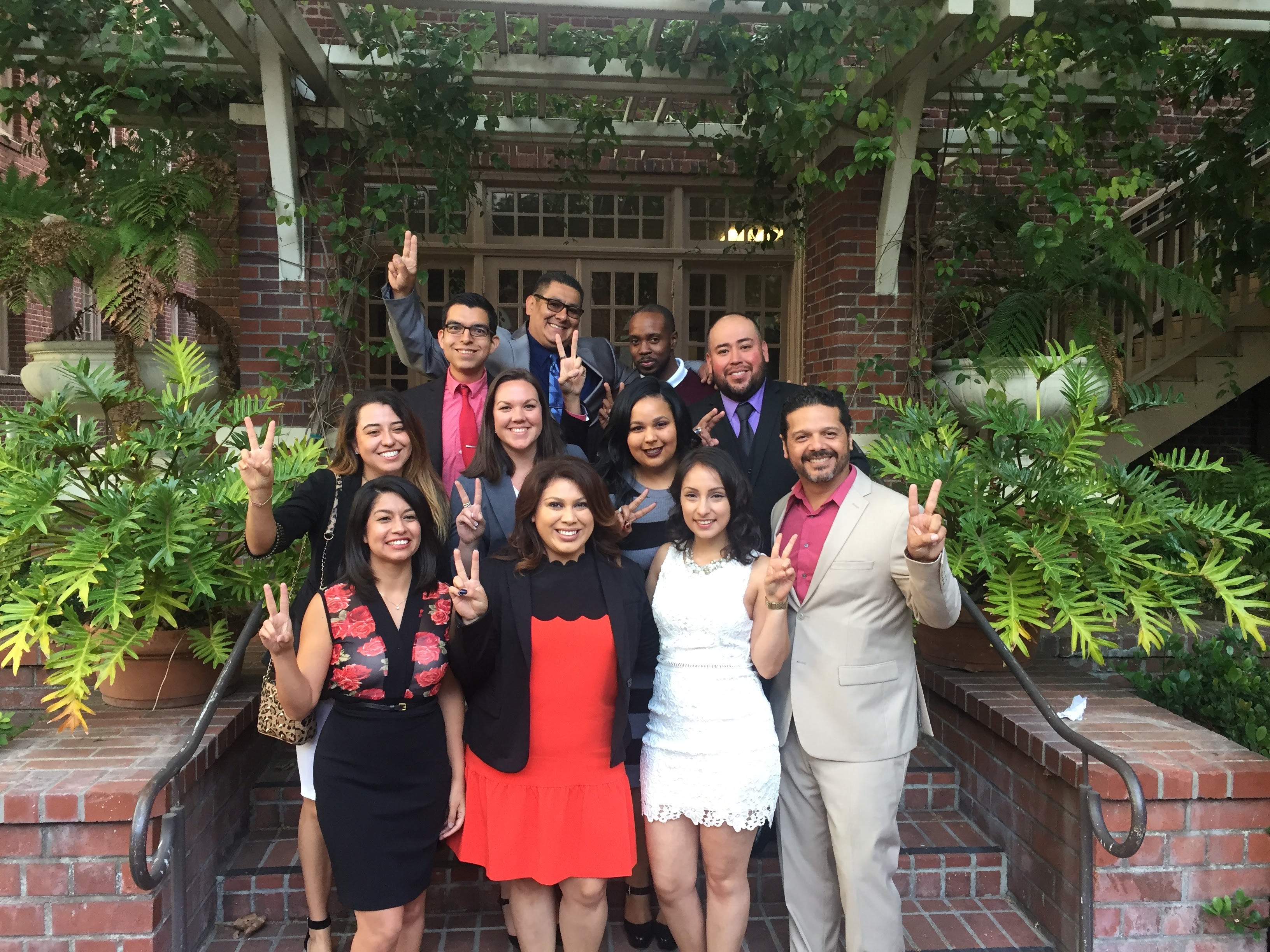A Unique Path to Service, Social Work and Student Government
August 17, 2017After serving in the military and working for a number of nonprofits, Alonso Fuente brought his passion for bettering communities to USC.
Alonso Fuente is not a typical USC graduate student. As an Army veteran, a single father of two boys and a self-described product of the social work system, he brings a unique and valuable perspective to the classroom. Driven by his belief in the value of community and desire to engage with his fellow students, Fuente ran for and was elected president of the USC Suzanne Dworak-Peck School of Social Work’s Student Organization board.

Between his studies, involvement in student government, volunteer work and parenting time, we were fortunate to find a few minutes to sit down with Fuente to discuss his path to social work. Here’s what we learned:
USC Suzanne Dworak-Peck School of Social Work: Does your veteran status play a role in your interest in social work?
Alonso Fuente: Definitely. As a veteran, you already have something in you that wants to serve and to give to a greater population. In fact, the military instills that in you — the idea that service goes beyond yourself. My military service from 1990 to 1994 is still a major influence in my life. The Army taught me that you have to take care of yourself [and] also the people around you. When you join, you’re thrust into the thick of it with strangers who eventually become your brothers and sisters, your family. That mindset has stuck with me and helps me to create a positive environment for myself and others here at USC.
USC: What has your experience in the MSW program been like?
AF: When I came to USC, I had been out of school for 15 years. Because of that, I’ve been really challenged in every class. At the same time, I see each class as an opportunity for growth. This is especially true in the social work program, where we’re encouraged to explore ourselves and learn from each other. We can ask questions and delve deep into our own personal stories in ways that allow us to grow as service providers. For me, sharing my stories and hearing others’ has been an emotional process, but it has also allowed us to collectively heal.

USC: How does your involvement in student government impact your studies?
AF: Because I’m an older student — and also a single parent — I felt very disconnected when I first came to USC. Right off the bat, I was exposed to student government. I knew that if I could get elected, I would be able to to become involved on a higher level and build a stronger sense of community. Fortunately, this has definitely proven to be true. For example, I’m working with fellow students to organize events aimed at raising money and collecting books for various nonprofit organizations. I get to make a positive impact on my community while also putting into practice things that I’m learning in my courses.
USC: Where do you see yourself going after you complete your studies at USC?
AF: When I graduate from USC, I will be certified to work in school settings. Ultimately, I would like to focus my work in the high school or middle school environment. I have two sons and was a part of the Boys & Girls Club growing up. It’s important for me to be able to focus on bettering the lives of these kids and their families.